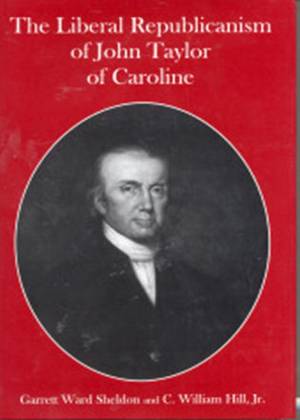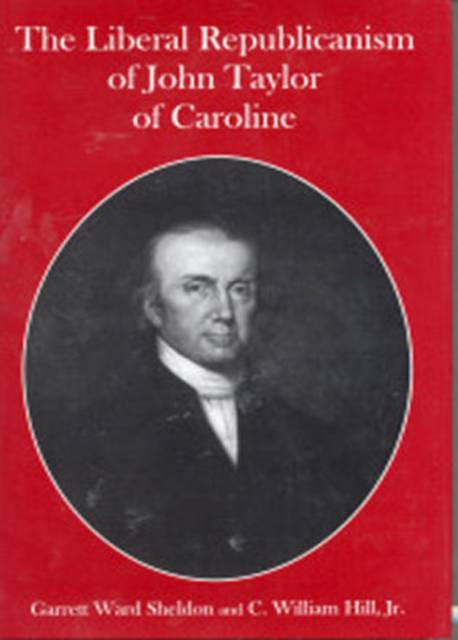
Door een staking bij bpost kan je online bestelling op dit moment iets langer onderweg zijn dan voorzien. Dringend iets nodig? Onze winkels ontvangen jou met open armen!
- Afhalen na 1 uur in een winkel met voorraad
- Gratis thuislevering in België vanaf € 30
- Ruim aanbod met 7 miljoen producten
Door een staking bij bpost kan je online bestelling op dit moment iets langer onderweg zijn dan voorzien. Dringend iets nodig? Onze winkels ontvangen jou met open armen!
- Afhalen na 1 uur in een winkel met voorraad
- Gratis thuislevering in België vanaf € 30
- Ruim aanbod met 7 miljoen producten
Zoeken
The Liberal Republicanism of John Taylor of Caroline
Garrett Ward Sheldon, Charles William Hill
Hardcover | Engels
€ 104,95
+ 209 punten
Omschrijving
This book is the first comprehensive chronological study of the works of a significant but little-known figure in early American history. A confidant of Thomas Jefferson, John Taylor of Caroline County, Virginia (1735-1824) represented the anti-Federalist position during the Constitutional debates and wrote extensively on government, economics, slavery, and liberty in each republic. Taylor's ideology blends Lockean liberal and Classical Republican ideas. This study fills an important gap in our understanding of early American political thought. This results in a surprising discovery that redefines the current scholarly debate on early American political thought. It finds that John Taylor reconciles Lockean liberalism and Classical Republicanism in ways that challenge the belief that liberalism's basis in natural rights, individualism, limited, impartial government, and laissez fair economics is incompatible with republican concern for civic virtue, corruption, patronage, public credit, stock companies, centralized government, and standing armies. Taylor's writings provide a revealing perspective on American government that clears away much of the confusion of recent scholarship and offers a view of the Constitution that will be startling to many twentieth-century minds. Ironically, the Classical Republican paradigm which resurrects John Taylor, is seriously challenged by his theories, and yet is responsible for rescuing him from the opprobrium of being the premier "states' rights" philosopher. Taylor's conception of government is based on the Lockean view that people are free, equal, and independent individuals who possess natural rights and should have the moral liberty to choose any form of government that suits them, without obligation to hereditary rulers or established social classes. Taylor acknowledges distinctions based only on individual merit: talents, education, and industry. Progress would occur as human reason improved and, therefore, government should be kept in close touch with its consti
Specificaties
Betrokkenen
- Auteur(s):
- Uitgeverij:
Inhoud
- Aantal bladzijden:
- 263
- Taal:
- Engels
Eigenschappen
- Productcode (EAN):
- 9781611473605
- Verschijningsdatum:
- 1/02/2008
- Uitvoering:
- Hardcover
- Formaat:
- Genaaid
- Afmetingen:
- 167 mm x 247 mm
- Gewicht:
- 553 g

Alleen bij Standaard Boekhandel
+ 209 punten op je klantenkaart van Standaard Boekhandel
Beoordelingen
We publiceren alleen reviews die voldoen aan de voorwaarden voor reviews. Bekijk onze voorwaarden voor reviews.











